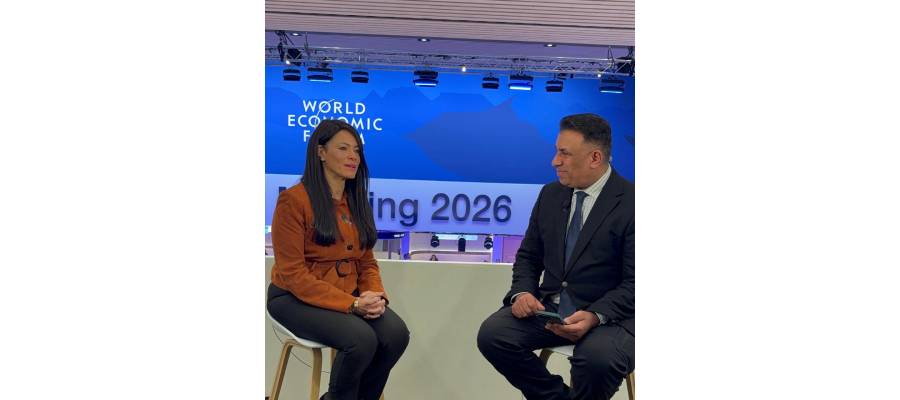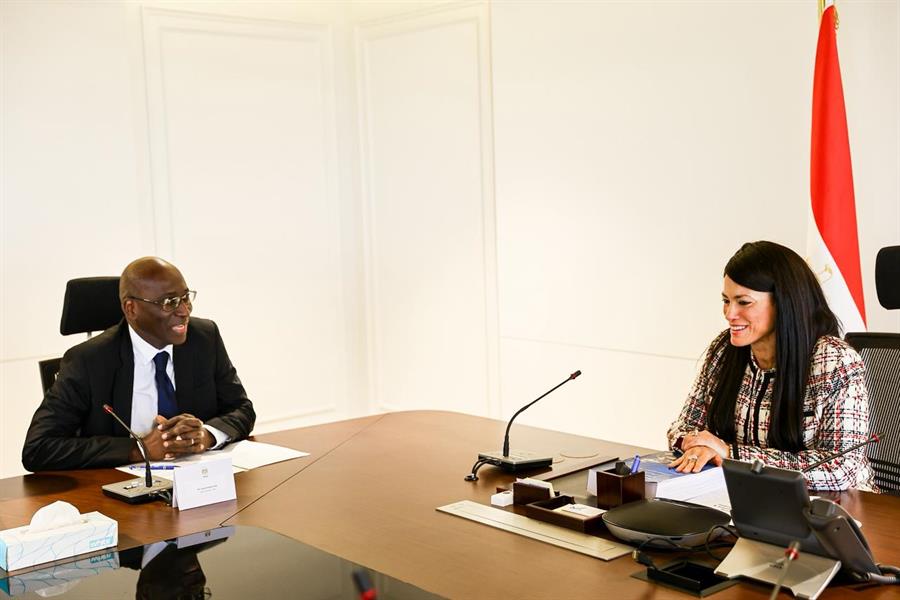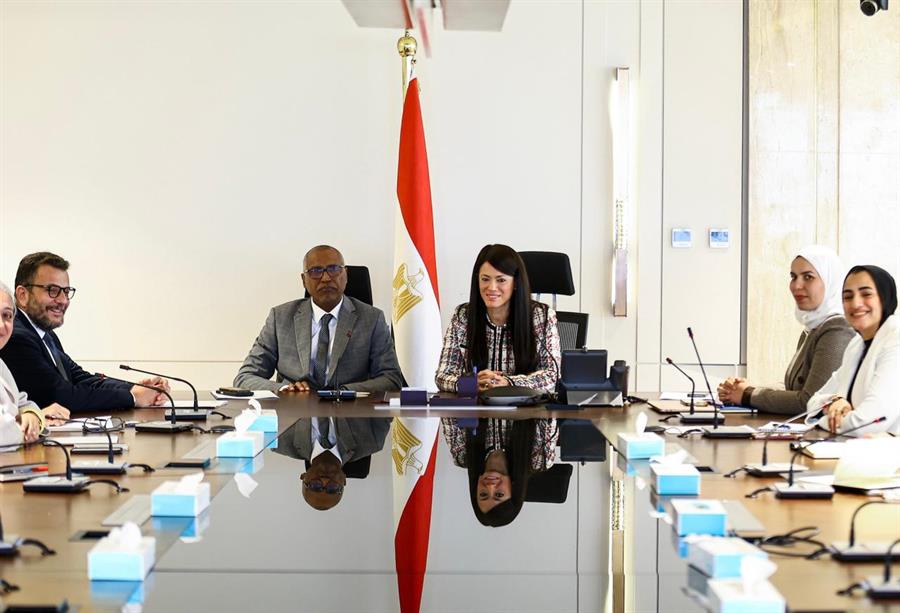On WEF sidelines in Davos : Egypt’s Planning Minister Development participates in a session on reforms in MENA

20 January 2023
Switzerland on January 20, 2023H.E. Dr. Hala El-Said, Minister of Planning and Economic Development participated in a session entitled "Between Liquidity and Fragility: Reform in MENA", on the sidelines of her participation in the activities of the 53rd annual meeting of the World Economic Forum (WEF) in Davos.The session was organized by Saudi privately-run Saudi channel Al-Arabiya TV, with the participation of Faisal Al-Ibrahim, the Saudi Minister of Economy and Planning, Abdullah bin Touq Al-Marri, the UAE Minister of Economy, Hanadi Al-Saleh, Chairman of the Board of Directors of Agility Holding Company in Kuwait, and Majid Jaafar, CEO of the UAE Crescent Petroleum Company, and the session was moderated by Lara Habib, Al Arabiya TV presenter.During the session, El-Said referred to the global challenges the world is currently experiencing, and the unprecedented state of uncertainty prevailing.El-Said explained that the repercussions on emerging countries will be more severe, as the repeated shocks of the global economy have restricted the ability to emerge countries to take the necessary measures to limit the effects of these crises on their economies and societies.She said that Egypt is facing some difficulties, including the foreign currency crisis and high levels of inflation. Yet, the country, with its abundant resources, heritage, and talents, is still positioning itself as a promising investment and tourism destination.The Minister of Planning stated that economic activity in Egypt is still dynamic, noting that a growth rate reached 6.6% in the last fiscal year, with expectations of 4.8-5% during the current fiscal year.Dr. Hala El-Said added that tourism is witnessing a strong performance, as the number of tourists increased by 55% in the first quarter of this fiscal year compared to last year.The revenues of the Suez Canal increased by about 30%, showing the strategic importance of the passage.Foreign direct investment increased by more than 90% in the past fiscal year. It is expected that Egypt in 2023 and over the coming years will be among the countries that enjoy the strongest investment momentum in the region.El-Said said, "We view the current threats and challenges as a unique opportunity to build our economy's long-term resilience and enhance its adaptive capacity, which will lay the foundations for stronger, more inclusive, and sustainable growth in the future."El-Said reviewed the Egyptian government's efforts to develop infrastructure, referring to the national program for structural reforms, which is being implemented to increase the ability to deal with the challenges and gaps revealed by the repeated shocks.
El-Said referred to the development of the role of the private sector in the economy, and the focus on developing the technical education and vocational training system to enhance the labor market, pointing to the launch of the state ownership policy document, which comes within the framework of increasing the opportunities for private sector participation in the economy.The Minister of Planning stressed that there is an urgent need to deepen cooperation between countries and between the public and private sectors. This will provide enhanced adaptability and flexibility to future shocks.Regarding The Sovereign Fund of Egypt (TSFE), Dr. Hala El-Said indicated that it is the investment arm of the Egyptian government, explaining that there is strong demand for the investment opportunities that we are currently offering, especially from the Gulf sovereign funds.The fund works by creating attractive investment products across some sectors, including renewable energy sources, green hydrogen, tourism, real estate, and logistics.This is in addition to the ongoing efforts to generate income and raise the value of some large state-owned companies by involving the private sector either through private placements or pre-IPO arrangements.Dr. Hala El-Said stressed that economic growth cannot be separated from environmental impact, as the ultimate goal all over the world should be restoring the goals of human progress and a healthy environment for a sustainable future.El-Said stressed that the countries of the Middle East and North Africa do not have sufficient financial space to face the chronic social and economic challenges and advance climate action at the same time.El-Said also stressed the importance of strengthening and deepening all forms of cooperation between the public and private sectors and considering partnerships between the two sectors as effective and innovative tools that offer many benefits, including distributing the costs of large projects.









